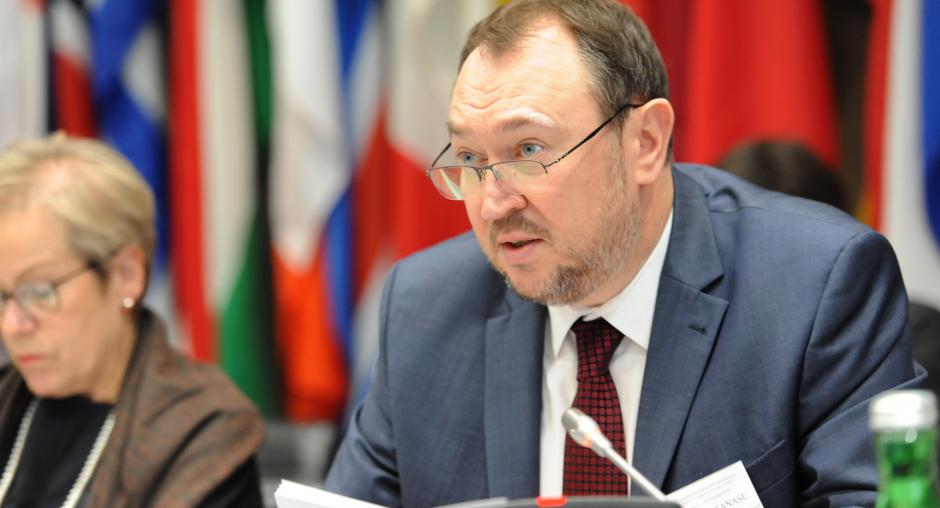Challenges and opportunities for freedom of peaceful assembly, including new technologies, focus of OSCE human rights meeting in Vienna

VIENNA, 22 November 2019 – How best to ensure the full enjoyment of the freedom of peaceful assembly by people in the OSCE area and beyond, including through participating States’ full implementation of existing OSCE commitments was the focus of the third Supplementary Human Dimension Meeting held under the auspices of Slovakia’s 2019 OSCE Chairmanship. The two-day meeting concluded today in Vienna.
Representatives and experts of OSCE participating States, Partners for Co-operation, and OSCE executive Structures, as well as international and civil society organizations discussed current and emerging trends in this area, the challenges and opportunities for freedom of peaceful assembly given fast-paced technological progress, as well as worrying violations of and excessive restrictions on the freedom of peaceful assembly.
Addressing the event’s opening session, the Chair of the OSCE Permanent Council and Permanent Representative of Slovakia to the OSCE, Ambassador Radomír Boháč stressed that the freedom of peaceful assembly is an integral part of democracy.
“Peaceful demonstrations are a way for people, especially the most vulnerable, to make their concerns and ideas heard. It is a form of public discourse. And freedom of assembly can also be a driver of political and societal change. This was the case in former Czechoslovakia, where peaceful demonstrations changed the fate of the country,” he said.
Ingibjörg Sólrún Gísladóttir, Director of the OSCE Office for Democratic Institutions and Human Rights (ODIHR), said: “The importance of the right to freedom of peaceful assembly as a legitimate and empowering means of expressing public opinion cannot be overestimated. Some governments wish to balance this right with the need to maintain security by prohibiting demonstrations. However, over-restrictive legislation of this kind usually fails to solve problems, and at the same time can create new challenges that are more difficult to resolve.”
In his keynote address, Alexandru Tanase, Member of the Council of Europe’s Venice Commission and a former Justice Minister and former President of the Constitutional Court of Moldova said that the right to freedom of peaceful assembly “is closely related to other cornerstones of democracy and pluralism, such as the freedom of expression and the freedom of association. In democratic societies, free assembly is one of the instruments by which people can bring about social change.”
In 2019, the Slovak OSCE Chair, with the support of the OSCE Office for Democratic Institutions and Human Rights, has organized three Supplementary Human Dimension Meetings. The other two meetings focused on upholding the principles of tolerance and non-discrimination, including in the promotion and protection of freedom of religion or belief, and effective multilateralism.
